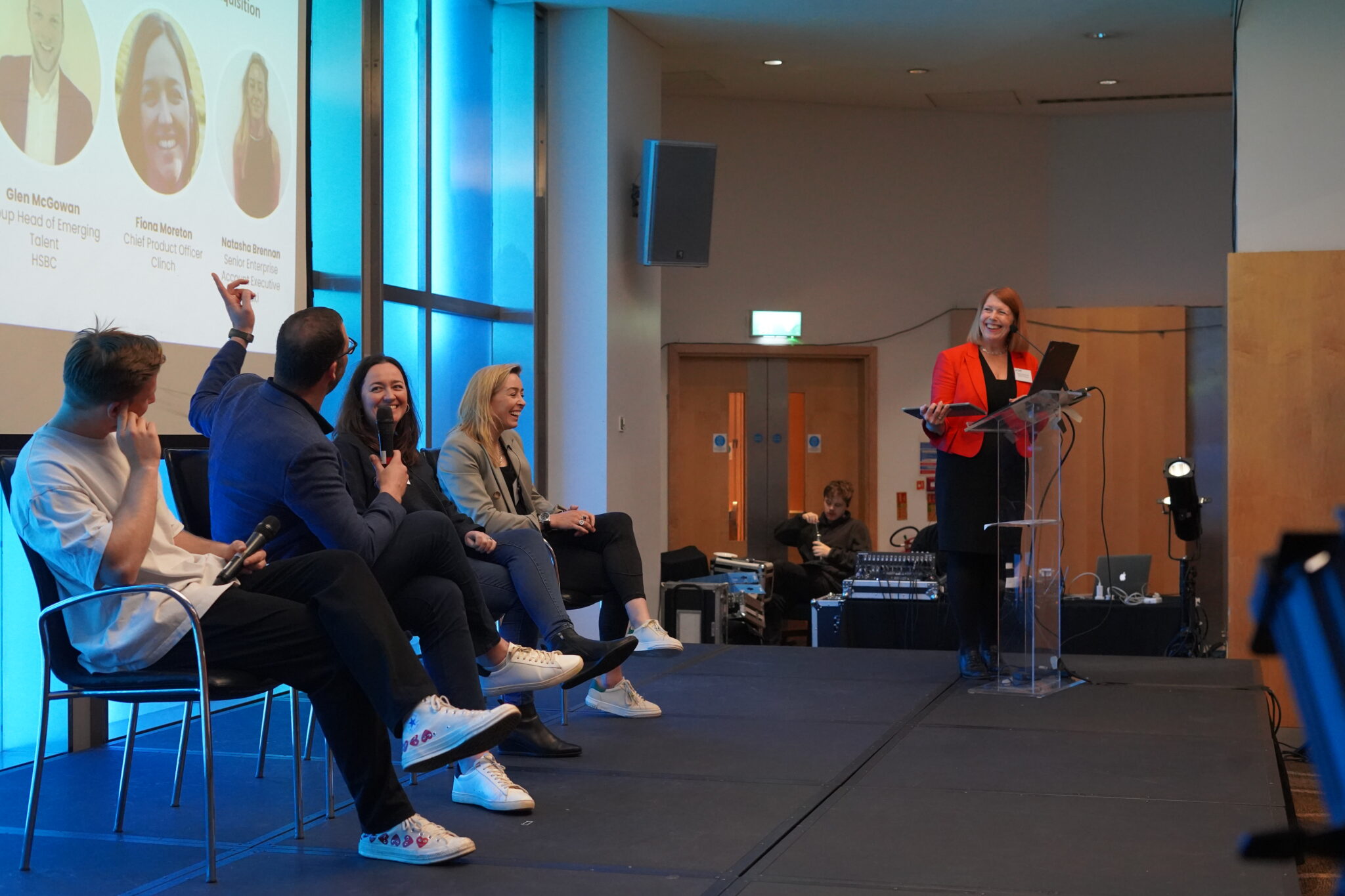On 23rd May, we brought together industry innovators to discuss the importance of meeting tomorrow’s talent at our Emerging Talent Summit at The Cumberland Hotel in London.
As workforce priorities shift to meet the challenge of engaging emerging talent early, organisations must recognise the importance of strategic engagement, authentic communication, and innovative practices in talent acquisition and retention. For employers, the paradigm has shifted towards cultivating their own workforce of experts. Whether through graduate schemes, apprenticeships, or flexible youth employment, fostering emerging talent has become an indispensable component for any comprehensive talent strategy.
Couldn’t make the event? Here are the key takeaways:
Engaging emerging talent early
With fewer young people entering the labour force, it’s essential to prioritise engaging them sooner rather than later. This approach allows organisations to:
– Nurture skills and competencies to align emerging talent skills with future organisational needs, ensuring a steady talent pipeline
– Recognise the influence of parents and caregivers on students’ career aspirations and involve them in the engagement process
– Identify potential early by engaging them early on in their educational journey. This will help them to align their studies with their ideal career paths, provide internship opportunities and build brand awareness
Optimising talent acquisition (TA) processes
The expectations of applicants, particularly Gen Z and Alpha, are changing. It’s imperative to consider the following:
– We found that 70% of students want to visit the company before accepting a job offer, emphasising the need for human interaction.
– Young talent seeks alignment with their values and clear development opportunities-
– Try to engage talent through popular platforms like Instagram, TikTok, and LinkedIn to showcase daily work life and company culture. It all comes down to speaking their language!
The role of AI in attracting emerging talent
AI plays a crucial role in enhancing accessibility and streamlining processes, but it must be balanced with human touch.
AI can help organisations expand their reach and streamline processes, making recruitment more efficient
– Candidates value understanding company culture and personal interactions, highlighting AI as a support, not a replacement in these areas
– We found that while Gen Z doesn’t tend to mind the use of AI in recruitment, it’s important to clearly explain the use of AI in the hiring process to build trust and transparency.
“One of my biggest takeaways from the summit was that AI can be viewed with scepticism as part of the attraction & assessment process by candidates & recruiters and it will be imperative that candidates and recruitment teams have a clear understanding of how it is being used & why, to install confidence in the process (explainable AI). This will enable and ensure the human authenticity component is still integral as part of the process.” – Natasha Brennan, Maki
Authenticity in talent acquisition
It remains paramount for Gen Z and Alpha to find genuine connections with potential employers.
– Organisations need to authentically represent their culture and values in a truly tangible way to attract emerging talent
– Clearly communicate the organisations’ purpose and development opportunity to create purpose-driven engagement
– Provide clear and compelling reasons to apply and why they should be choosing your organisation
Roundtable insights
During the summit we held several roundtable discussions that provided a deep dive into current talent acquisition and retention strategies. During our first roundtable, our delegates discussed how organisations can maintain authenticity and efficiency through transparent and open communication.
Our partners and delegates emphasised the importance of consistent messaging and the integration of human touch in talent acquisition. This involves authentically reflecting the company’s values and culture in all communications, while combining personal interactions, such as video messages and personalised emails, with automated processes to create a more engaging and genuine candidate experience.
Our second roundtable highlighted the importance of using tailored communication by leveraging candidate data to send personalised messages. Additionally, maintaining a feedback loop with constructive feedback and regular follow-ups is crucial. Utilising engaging platforms that facilitate direct interaction between candidates and potential colleagues or managers further enhances the personalised experience, ensuring candidates feel valued and connected throughout the hiring process.
The roundtable discussing balancing standardised assessments with individual qualities underscored the need for hybrid assessments that blend standardised tests with personalised interviews or project-based evaluations. It emphasised the importance of flexible criteria that account for diverse backgrounds and experiences, rather than relying solely on traditional qualifications. Additionally, there was a focus on continuous improvement, advocating for regular updates to assessment methods based on feedback to ensure fairness and inclusivity.
The Summit underscored the critical need for organisations to engage with emerging talent early and authentically to build a future-ready workforce. The insights shared by industry leaders highlighted the importance of aligning strategic engagement, personalised communication, and innovative talent acquisition practices. Curating genuine connections with young talent through apprenticeships, graduate schemes, and tailored recruitment strategies, companies can ensure a steady talent pipeline aligned with their future needs. Additionally, balancing the efficiency of AI with the essential human touch and maintaining transparency in communication will be pivotal in attracting and retaining the next generation of professionals.







